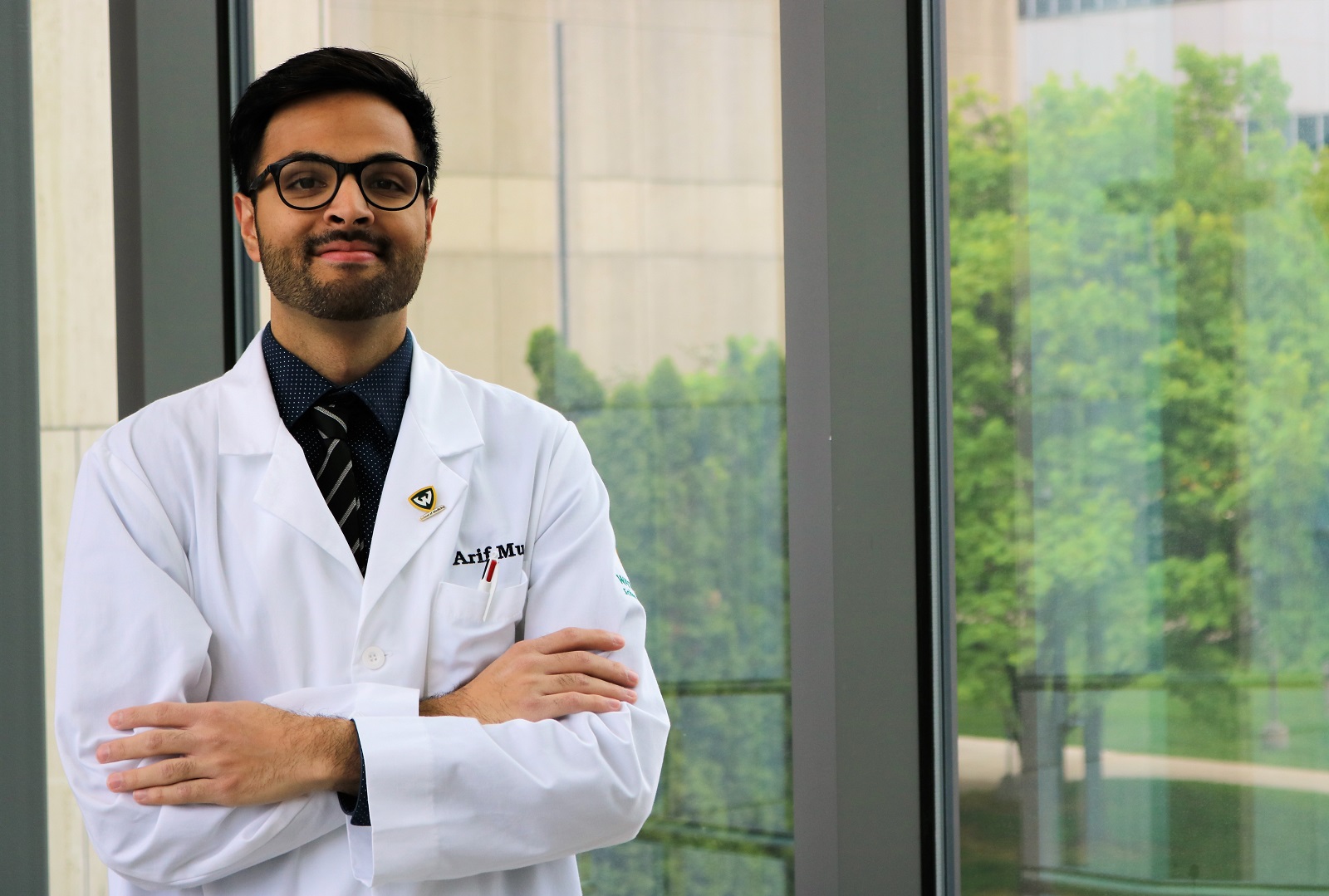Wayne State University medical student Arif Musa has garnered more national attention for his research into pre-procedural anxiety in interventional radiology patients, this time from the top journal in the field.
The Journal of Vascular and Interventional Radiology has published his abstract, “Notions of Preprocedural Anxiety Patient Anxiety in the Realm of IR.”
“Our abstract at the Society of Interventional Radiology 2019 meeting (held in Austin, Texas last April) was chosen by the abstract review committee as particularly meritorious. We received special invitation by the editor-in-chief to submit our article to the journal JVIR,” Musa said.

The study analyzed the responses of 1,163 interventional radiologists who are members of SIR. The survey found that the majority of respondents did not directly measure preprocedural anxiety, but would address it if brought up by the patient. The most supported methods to reduce patient anxiety were patient education, anti-anxiety medication and empathetic communication.
“Although the physicians held themselves most responsible to manage their patients’ anxiety, they allocated a significant degree of responsibility to radiology nurses as well,” Musa said.
The team is addressing this with a follow-up study on the views of pre-procedural anxiety reduction in radiology nurses by surveying members of the Association of Radiology in Nursing.
“Pre-procedural anxiety is a normal, natural human response and every patient will have at least some prior to getting a procedure. It is critical that we check in with the patient ahead of time and manage it proactively to avoid unnecessary trauma, anxiety attacks and worse outcomes in the end. Being open and asking the patients directly how they’re doing ahead of time is how I gauge what actions need to be done. Glad we are addressing this,” read one nurse’s response to the survey.
Musa ultimately wants to inform health care providers about the importance of reducing preprocedural anxiety in their patients and which techniques are most commonly used in practice.
“My research suggests that there remains uncertainty regarding how best to assess preprocedural anxiety, but certainty that patient anxiety affects the delivery of care,” he said. “My findings showed that the responsibility to reduce preprocedural anxiety is shared between physicians, nurses and even patients. In other words, effectively reducing patient anxiety requires teamwork between patients and providers.”
WSU Assistant Professor of Radiology Maysoon Al-Hihi, M.D., is the faculty advisor for Musa’s project. Musa also conducted the research under the mentorship of Elvira Lang, M.D., a former Harvard Medical College faculty member and now chief executive officer of Comfort Talk, a method of non-pharmaceutical patient sedation that uses special talking techniques to ease anxiety, pain and distress.